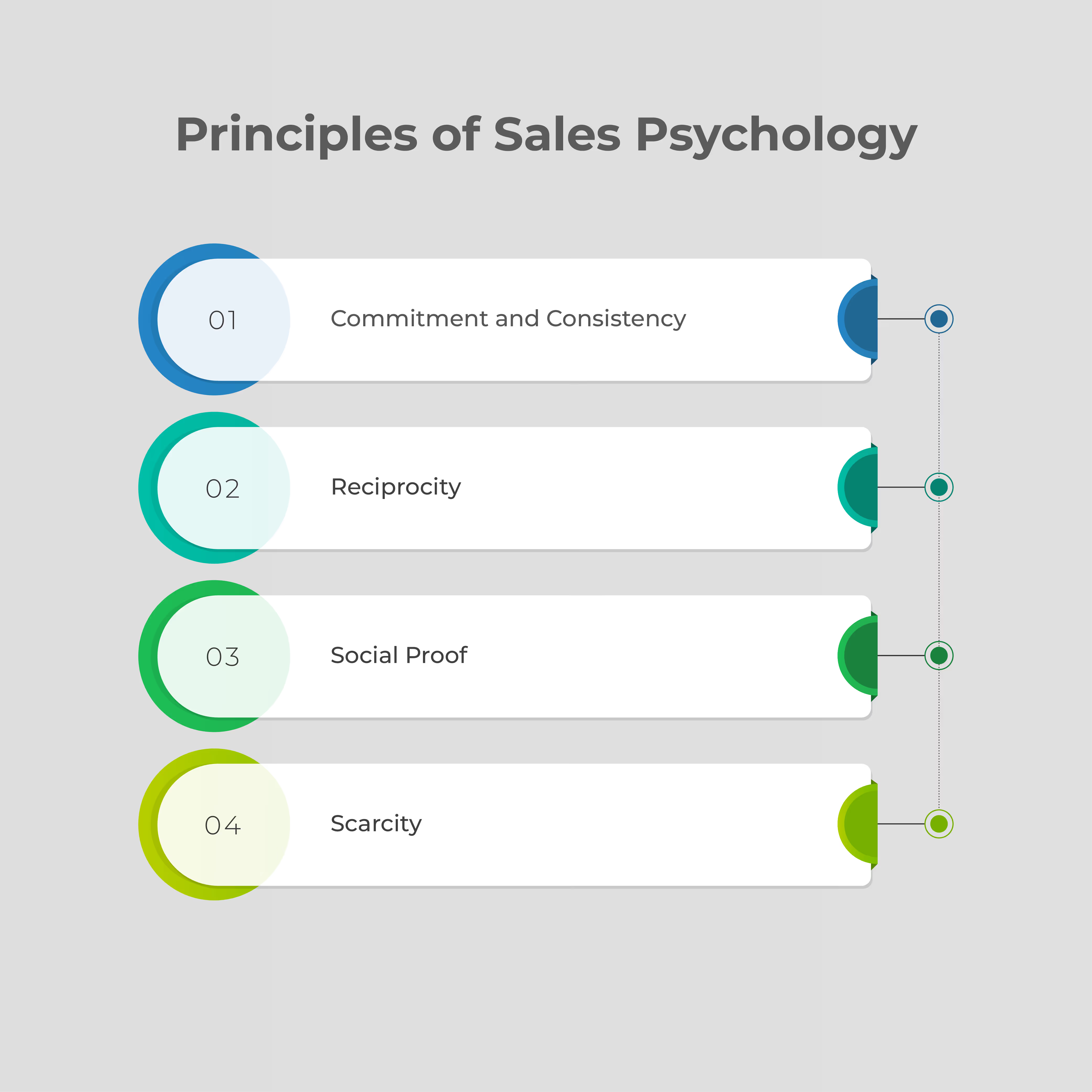
Blog
Improve your sales | Understanding the psychology of sales
July 25, 2022


Key Insights
With all the analytics that goes around these days, it is easy to make an effective pitch, but the human psyche is still something only a true salesman can conquer. Knowing the way a human brain responds to sales pitches, the many ways a sales rep can influence a buyers decision are very much an integral part of a sales reps repertoire that no technology can conquer, at least as yet.
This very subtle art of manipulating, albeit in a positive way, a prospective customer’s decision to make that purchase is based on some rather tacit sales psychology that most of your top sales reps would have mastered.
The sections that follow delve on these very simple but seldom used tactics to positively influence a buyer’s decision. This is no sales bible but includes some of the well known practices that top sales reps have been employing to, shall we say pocket the customer.
Principles of Sales Psychology

To start with let’s refer to the highly acclaimed best seller, Influence The Psychology of Persuasion, by Dr. Robert Cialdini. Dr. Cialdini builds the world of sales psychology around a few principles. Principles like commitment, reciprocity, scarcity and social proof are the prominent ones. Let's explore them briefly before proceeding to other facets of sales psychology.
Commitment and Consistency
This principle considers the fact that generally people in business would like to stay consistent with what they have committed in presales discussions. Sales folks can make use of this to nudge some sort of assurance from a prospective customer. Intelligently curated questions that lead to a statement that is just short of a commitment is enough to guide the prospect into a deal in the future.
Questions which most likely result in a yes, like “does this solution suit your business needs?” will in most cases guide the prospect into a state of commitment to a business deal.
Reciprocity
This principle of sales psychology works on the idea that a prospect, once given all the attention and has been a witness to the meticulous work put in, feels the need to reciprocate positively, hopefully by agreeing to a deal. Sometimes just an agreement on part of the prospect to try out the product is enough for the sales team to seize the deal.
Social Proof
This is a tried and tested technique. This one always reminds one of the time when you go around collecting funds on behalf of your school, for a charitable cause. The prospective donors would always want to know how much their neighbors have contributed. Decision makers will always look to justify their sales decision by taking a leaf out of their competitors play book. Experienced sales reps will always, very subtly exhibit their existing clientele to a prospect.
A social proof will go a long way in assuring the prospect of the confidence other customers have in your product. On e-commerce sites, product reviews and ratings are a small example of social proof. A B2B customer will always want to know about your clientele before taking that final call, and that is exactly why many upcoming and relatively prominent brands show a list of clients on the landing page of their websites.

Scarcity
The principle of scarcity stems from the fact that any product, less in supply, will be high in demand. Take the example of memory chips of relatively old PCs. These electronic chips come at a premium now as manufacturers have stopped production of these chips.
Consumers not ready or unable to upgrade to a new PC are forced to buy these memory chips at premium rates. The age old adage of “limited time period offer” ascribes to this principle. A genuinely limited period offer will encourage the prospect into a deal. Huge enterprises like Amazon make use of this very principle to drive huge sales during holiday season or festivals.
Those were some of the principles of sales psychology that you could apply on your prospective customers. What about influencing your sales folks to sell better and drive quotas. Let's take a look at a few strategies that sales leaders should employ to get more out of their sales teams.
Sales Psychology within Sales Teams
Sales psychology is not limited to leads and prospects. It can be put to use within sales teams to boost sales performance.
Here are some tried and tested principles that can work wonders for your sales revenue.
Verbal Persuasion
Celebrating small wins of your sales folks while taking care that you are not overtly rewarding (lest they get greedy) and being consistent at that, keeps them in the hunt. A word of appreciation from a senior or a figure within the organization whom they look upto.
Drive a belief in them that they all can achieve their quotas. It is even more powerful when such messages are driven by successful peers within the team. Well structured sales compensation plans that regularly reward good sales performances keeps the rest of the team interested and motivated.
Role Modelling
Role modelling, like in any other profession, involves exhorting the team to achieve goals by following role models in the team or organization. Having a balanced team with at least one if not a couple of top performers, helps to pull up the rest of the team using the sales psychology of role modelling. You as a sales manager could exhort your top performers to come up with winning sales plays that worked well for them.
Conclusion
It is no secret that an effective sales incentive compensation plan can be a great boost for sales folks. You can work out the best for your sales reps with a sales performance management system and an incentive compensation plan working in tandem. Additionally, incorporating effective sales demo examples during training sessions can provide practical insights and enhance the learning experience for your team.
Kennect offers you a tool that can work seamlessly to give the ideal environment for fostering best sales practices.
To know more on how these tools can help your sales teams, request for a demo at Kennect.io
ReKennect : Stay ahead of the curve!
Subscribe to our bi-weekly newsletter packed with latest trends and insights on incentives.
Thank you! Your submission has been received!
Oops! Something went wrong while submitting the form.
Your data is in safe hands. Check out our Privacy policy for more info















